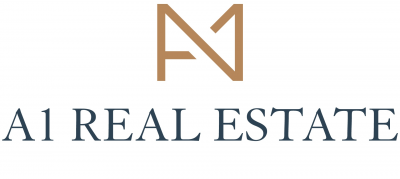
Deductible expenses from property income for a lessor
Regulation: Expenses deductible from property income for a lessor
- What are the maintenance and repair costs?
- What are the rental management and co-ownership costs?
- What about loan interest, property tax and other deductible expenses?
As a landlord, managing a property involves not only collecting rents, but also incurring various expenses related to ownership. Fortunately, there are many expenses that can be deducted from your property income, reducing your tax base and optimizing your net income. Here is a detailed overview of the main deductible expenses to be aware of:
What are the maintenance and repair costs?
The list of deductible expenses from the property has been listed by the General Tax Code to determine the net property income:
- Administration and management costs.
- Eviction allowances and relocation costs.
- Expenditure on works (maintenance, repair, improvement).
- The rental charges borne by the lessor following the departure of the tenant.
- Taxes (property tax excluding TEOM).
- Insurance premiums regardless of the risk covered.
- Provisions for condominium fees.
- Interest and borrowing costs.
- Flat-rate management fees for an amount of 20 € per local.
What are the rental management and co-ownership costs?
Rental management and co-ownership expenses include a set of expenses related to the administration and day-to-day management of a property as well as the operating costs of the co-ownership in which it is located.
These fees are usually collected by real estate agencies or property managers in return for the services they provide as part of the rental management of the property. They include finding tenants, drafting leases, collecting rents, following up on unpaid bills, inventory of fixtures on entry and exit, as well as managing any disputes with tenants.
Trustee fees are fees paid to the condominium trustee for the administrative and technical management of the condominium building. These costs include the convening and holding of general meetings, the management of claims, works and service provider contracts, as well as the keeping of the accounts of the co-ownership.
They include the fees of the accountant or accounting firm responsible for the financial management of the property. These costs include the maintenance of the co-ownership's accounts, the preparation of tax returns, the management of calls for funds, the monitoring of provisional budgets, as well as the audit of the accounts at the end of the financial year.
Insurance premiums are an unavoidable expense for any landlord. They cover the risks associated with renting out the property, such as accidental damage, damage, damage caused by tenants, rental vacancy risks, owner's civil liability, etc.
In the event of a dispute with tenants or other stakeholders, litigation costs may be incurred. They include lawyers' fees, court proceedings, bailiff's fees, as well as mediation or conciliation costs.
These fees represent the day-to-day expenses necessary for the management and maintenance of the condominium building. They include the costs of maintaining the common areas (cleaning, lighting, green spaces), guarding or security charges, maintenance contracts (elevator, heating, plumbing), the costs of managing the swimming pool or park, as well as the fees of the union council.
In short, rental management and co-ownership costs are unavoidable expenses for any landlord and owner of a condominium property. These costs are deductible from property income and help to optimize the management and profitability of the rental investment. It is recommended to keep strict accounting and keep all the necessary supporting documents to benefit from these tax deductions.
Loan interest is the interest paid on the loan taken out to finance the acquisition, construction or renovation of the property. This interest is deductible from property income up to the limit of the interest actually paid and in compliance with the ceilings provided for by the tax legislation in force. This deduction reduces the taxable amount of the rents received.
The property tax is a local tax levied each year by the municipality on the cadastral value of the property. It is paid by the landlord and can be deducted from property income. However, it is important to note that the property tax deduction is capped and cannot exceed certain limits set by law.
Expenses incurred to carry out renovation, improvement or conversion work on the property are also deductible from property income. This includes, in particular, work to improve the energy performance of the dwelling, to renovate the common areas of a condominium building, or to bring the property into compliance with the standards in force. These expenses must be justified by invoices and carried out in compliance with the conditions laid down by the tax legislation.
In addition to the charges mentioned above, other expenses can be deducted from property income, such as insurance premiums, rental and co-ownership management fees, litigation costs, expenses related to the rental vacancy, notary fees, etc. It is essential to keep all the necessary supporting documents to be able to benefit from these tax deductions when filing your taxes.
In summary, loan interest, property tax and other deductible expenses are important expenses to consider when managing a rental property. These expenses reduce the taxable amount of rents received and thus help to optimize the profitability of the real estate investment.

You want to
to sell in Paris or its surroundings ?
Posted on 20/10/2021 by
Andy LECUYER




